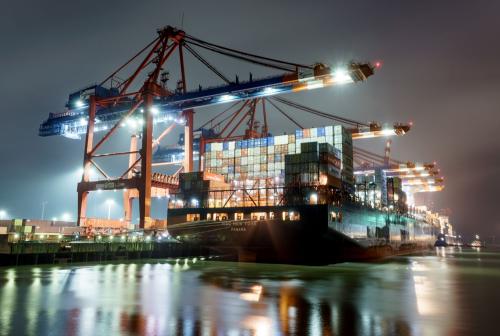John Kerry to travel to Kenya and Djibouti next week
Exactly one year after U.S. Secretary of State John Kerry’s last multi-country tour of sub-Saharan Africa, he is preparing for another visit to the continent—to Kenya and Djibouti from May 3 to 5, 2015. In Kenya, Kerry and a U.S. delegation including Linda Thomas-Greenfield, assistant secretary of state for African affairs, will engage in talks with senior Kenyan officials on U.S.-Kenya security cooperation, which the U.S. formalized through its Security Governance Initiative (SGI) at the U.S.-Africa Leaders Summit last August. Over the past several years, the U.S. has increased its military assistance to Kenya and African Union (AU) troops to combat the Somali extremist group al-Shabab and has conducted targeted drone strikes against the group’s top leaders. In the wake of the attack on Kenya’s Garissa University by al-Shabab, President Obama pledged U.S. support for Kenya, and Foreign Minister Amina Mohamed has stated that Kenya is currently seeking additional assistance from the U.S. to strengthen its military and intelligence capabilities.
Kerry will also meet with a wide array of leaders from Kenya’s private sector, civil society, humanitarian organizations, and political opposition regarding the two countries’ “common goals, including accelerating economic growth, strengthening democratic institutions, and improving regional security,” according to a U.S. State Department spokesperson. These meetings are expected to build the foundation for President Obama’s trip to Kenya for the Global Entrepreneurship Summit in July of this year.
On Tuesday, May 5, Kerry will become the first sitting secretary of state to travel to Djibouti. There, he will meet with government officials regarding the evacuation of civilians from Yemen and also visit Camp Lemonnier, the U.S. military base from which it coordinates its counterterror operations in the Horn of Africa region.
Protests erupt as Burundian president seeks third term
This week saw the proliferation of anti-government street demonstrations as current President Pierre Nkurunziza declared his candidacy for a third term, after being in office for ten years. The opposition has deemed this move as “unconstitutional” and in violation of the 2006 Arusha peace deal which ended the civil war. Since the announcement, hundreds of civilians took to the streets of Bujumbura, despite a strong military presence. At least six people have been killed in clashes between police forces and civilians.
Since the protests erupted, leading human rights activist Pierre-Claver Mbonimpa has been arrested alongside more than 200 protesters. One of Burundi’s main independent radio stations was also suspended as they were covering the protests. On Wednesday, the government blocked social media platforms, including Twitter and Facebook, declaring them important tools in implementing and organizing protests. Thursday, amid continuing political protests, Burundi closed its national university and students were sent home.
Amid the recent protests, Burundi’s constitutional court will examine the president’s third term bid. Meanwhile, U.N. secretary general Ban Ki-moon has sent his special envoy for the Great Lakes Region to hold a dialogue with president Nkurunziza and other government authorities. Senior U.S. diplomat Tom Malinowski also arrived in Bujumbura on Thursday to help defuse the biggest crisis the country has seen in the last few years, expressing disappointment over Nkurunziza’s decision to run for a third term.
China invests billions in African infrastructure
Since the early 2000s, China has become an increasingly significant source of financing for African infrastructure projects, as noted in a recent Brookings paper, “Financing African infrastructure: Can the world deliver?” This week, observers have seen an additional spike in African infrastructure investments from Chinese firms, as three major railway, real estate, and other infrastructure deals were struck on the continent, totaling nearly $7.5 billion in investments.
On Monday, April 27, the state-owned China Railway Construction Corp announced that it will construct a $3.5 billion railway line in Nigeria, as well as a $1.9 billion real estate project in Zimbabwe. Then on Wednesday, the Industrial and Commercial Bank of China (one of the country’s largest lenders) signed a $2 billion deal with the government of Equatorial Guinea in order to carry out a number of infrastructure projects throughout the country. These deals align with China’s “One Belt, One Road” strategy of building infrastructure in Africa and throughout the developing world in order to further integrate their economies, stimulate economic growth, and ultimately increase demand for Chinese exports. For more insight into China’s infrastructure lending in Africa and the implications of these investments for the region’s economies, please see the following piece by Africa Growth Initiative Nonresident Fellow Yun Sun: “Inserting Africa into China’s One Belt, One Road strategy: A new opportunity for jobs and infrastructure?”



Commentary
Africa in the News: John Kerry’s upcoming visit to Kenya and Djibouti, protests against Burundian President Nkurunziza’s bid for a third term, and Chinese investments in African infrastructure
May 1, 2015